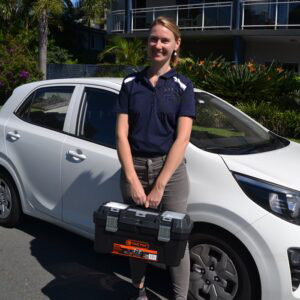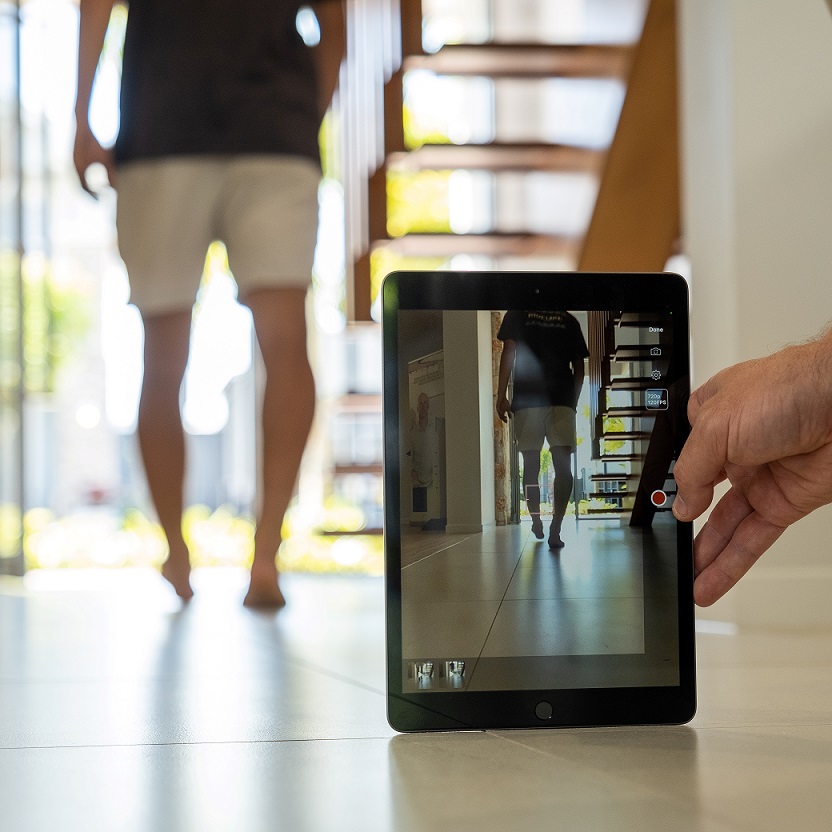Choosing the Right Mobile Allied Health Support: Physio, OT, Podiatry & More Explained
Allied health services are the backbone of rehabilitation, developmental care, and quality-of-life support — especially for NDIS participants and those needing home-based care. But when your needs span multiple areas — like mobility, daily living, speech, or foot care — how do you know which type of therapist is right for your goals?
This guide breaks down the roles of mobile allied health professionals, including physiotherapists, occupational therapists, podiatrists, and speech pathologists. You’ll gain clarity on who does what, what conditions each can help with, and how mobile services deliver better outcomes through real-world, in-home care.
Why Choose Mobile Allied Health Services?

The demand for mobile allied health support is growing — and for good reason.
For many clients, attending clinic appointments is either physically difficult, emotionally draining, or simply impractical. Mobile services remove these barriers by bringing therapy to the client, not the other way around.
Benefits of In-Home Allied Health Support:
- Comfort and familiarity: Therapy is delivered in the setting where clients feel safest.
- Personalised strategies: Therapists assess and support real-life routines.
- Reduced disruption: No travel, no waiting rooms, no unnecessary fatigue.
- Greater inclusion: Family and carers can observe and support care plans.
Now let’s explore how each allied health professional supports recovery, independence, and wellbeing — and when to call on each one.
1. Mobile Physiotherapist: Restoring Movement, Strength & Mobility

A mobile physiotherapist helps people improve movement, strength, coordination, and pain management — often after injury, surgery, or due to disability.
Common Conditions Treated:
- Stroke recovery and neurological conditions (MS, Parkinson’s)
- Post-operative rehab (hip/knee replacements, spinal surgery)
- Chronic pain and arthritis
- Falls risk and balance issues
- Developmental delays in children (e.g. cerebral palsy, Down syndrome)
Key Services Delivered at Home:
- Balance and falls prevention programs
- Strength training using household furniture
- Mobility assessments and equipment trials (e.g. walkers, wheelchairs)
- Gait retraining and walking support
- Functional exercise programs tailored to daily routines
Mobile physiotherapy is especially valuable for clients who are housebound, fatigued, or require observation of how they move around their home environment.
2. Mobile Occupational Therapist (OT): Building Everyday Independence

A mobile occupational therapist supports clients in participating fully in everyday life — from showering and dressing to cooking, working, and navigating their environment.
Common Client Goals:
- Improving independence in personal care
- Setting up home modifications for safety and access
- Supporting children with sensory, motor, or cognitive challenges
- Writing functional capacity assessments for NDIS plans
- Coaching families or support workers in daily task strategies
In-Home OT Sessions May Include:
- Task analysis: observing and supporting personal care routines
- Equipment prescription: bathroom aids, kitchen tools, pressure cushions
- Sensory regulation strategies for children or adults with autism
- Energy conservation for clients with fatigue or chronic illness
- Environmental assessments for home access and safety
An OT often acts as a key coordinator of long-term support, bridging the gap between goals, carers, and funding bodies like the NDIS.
3. Mobile Podiatrist: Foot, Skin, and Nail Care for Better Mobility

Foot health is crucial to overall wellbeing — yet often overlooked until problems arise. A mobile podiatrist provides essential support for clients unable to attend clinics due to age, injury, disability, or chronic disease.
When to Consider Mobile Podiatry:
- Difficulty walking due to painful feet, corns, or thickened nails
- Diabetic foot management and ulcer prevention
- Fungal or ingrown toenails
- Falls due to foot deformities or instability
- Orthotic or footwear prescription for mobility support
Home-Based Services May Include:
- Nail care and debridement (thick nails, fungal nails, etc.)
- Offloading pressure points to prevent ulcers
- Gait analysis and fall risk assessments
- Footwear advice and orthotic fittings
Podiatrists are often an unsung hero in aged care — preventing infection, improving mobility, and reducing avoidable hospital admissions through simple but expert foot care.
4. Mobile Speech Pathologist: Supporting Communication & Swallowing
A mobile speech pathologist (or speechie) helps people with communication difficulties, swallowing safety, and mealtime management. This can be critical for children with developmental delays or adults with acquired conditions like stroke or dementia.
Common Areas of Support:
- Articulation and speech clarity
- Language comprehension and expression
- Social communication skills (e.g. for autism spectrum)
- Swallowing safety and mealtime texture plans (especially for aged care clients)
- Communication device training (AAC systems, iPads, apps)
Delivered at Home:
- Real-life communication support in family settings
- Swallowing assessments at mealtime
- Parent coaching for play-based early language development
- Reports for NDIS or aged care funding plans
Because communication is inherently social and context-driven, home-based speech therapy allows the therapist to work within the real environment — enhancing relevance and outcomes.
How Team Rehab Solutions Delivers Multi-Disciplinary Mobile Care
At Team Rehab Solutions, our Gold Coast-based team provides allied health support at home across the above disciplines. This allows clients to:
- Access multiple services under one provider
- Enjoy consistent communication between therapists
- Benefit from collaborative care planning
- Reduce admin burden via one contact point
We work closely with clients, families, NDIS support coordinators, and plan managers to deliver tailored care that evolves as goals progress.
How to Choose the Right Mobile Allied Health Service
Not sure which type of support is right for your needs? Here’s a quick breakdown based on common challenges:
If You’re Experiencing:
Difficulty walking, muscle weakness, or recovering from surgery → A mobile physiotherapist can help restore movement, strength, and independence through tailored exercise and mobility support.
If You’re Struggling With:
Showering, dressing, cooking, or moving safely around the home → A mobile occupational therapist (OT) can support your ability to manage daily tasks and suggest practical home modifications or assistive devices.
If You Need Help With:
Foot care, diabetes-related issues, or problems with walking or balance → A mobile podiatrist can manage foot health, treat skin and nail concerns, and help prevent falls through better foot function and footwear advice.
If You or a Family Member Have:
Speech difficulties, communication challenges, or swallowing concerns → A mobile speech pathologist can support clearer communication, safer mealtimes, and social interaction skills — tailored to your real-life environment.
What If You Need Help in Multiple Areas?
That’s common — and that’s exactly where Team Rehab Solutions shines. We take a collaborative, multi-disciplinary approach, meaning our therapists communicate and coordinate to create shared goals that reflect your needs, not just your diagnosis.
If you’re unsure where to begin, we can help guide you through the first step.
Choosing Smart, Personalised Support
Choosing the right mobile allied health support means putting the client’s real-world needs first. It’s about delivering high-quality care not just in theory, but in kitchens, bedrooms, bathrooms, and backyards — where life actually happens.
Whether it’s getting up from a chair without pain, learning to tie a shoelace, or joining a family conversation, allied health professionals help people live with greater independence and dignity.
At Team Rehab Solutions, we believe in practical, compassionate care. And we bring it right to your door.
Need help choosing the right support?
Call (07) 5597 6544 or submit an enquiry here and we’ll help you get started with the services that make the most sense for your goals.
